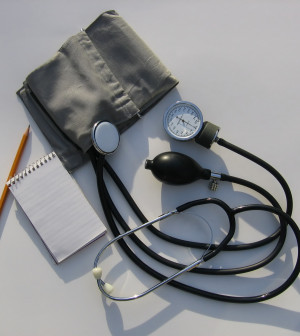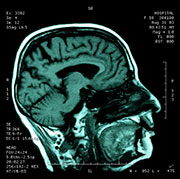- Could Your Grocery Store Meat Be Causing Recurring UTIs?
- Are You Making This Expensive Thermostat Error This Winter?
- Recognizing the Signs of Hypothyroidism
- 10 Strategies to Overcome Insomnia
- Could Artificial Sweeteners Be Aging the Brain Faster?
- Techniques for Soothing Your Nervous System
- Does the Water in Your House Smell Funny? Here’s Why
- Can a Daily Dose of Apple Cider Vinegar Actually Aid Weight Loss?
- 6 Health Beverages That Can Actually Spike Your Blood Sugar
- Treatment Options for Social Anxiety Disorder
Dehydration Linked to Greater Stroke Damage


People who aren’t well-hydrated when they have a stroke are about four times more likely to have a worse outcome than people who’ve had more fluids, a new study suggests.
Researchers found that stroke effects worsened or stayed the same in 42 percent of dehydrated patients after hospitalization for their stroke, compared to 17 percent of hydrated patients.
Stroke outcomes may be worse among dehydrated patients because their blood may be thicker than patients with adequate body fluid levels, according to study author Dr. Mona Bahouth, a cerebrovascular fellow in the department of neurology at Johns Hopkins Hospital in Baltimore.
“I think we had a hunch … that hydration would be a key feature for stroke patients,” Bahouth said. “So it’s not too surprising, but it’s just the beginning. Now we need to figure out what to do with the [findings].”
The research is scheduled to be presented Thursday at the annual meeting of the American Stroke Association in Nashville. Studies presented at scientific conferences typically have not been peer-reviewed or published and results are considered preliminary.
More than 795,000 Americans have a stroke every year, according to the U.S. Centers for Disease Control and Prevention. The vast majority of strokes occur when a clot blocks blood flow to a portion of the brain. Strokes kill nearly 130,000 annually in the United States, according to the CDC.
Bahouth and her team collected data from nearly 170 people who had clot-related (known as ischemic) strokes at Johns Hopkins Hospital during a nine-month span. About 44 percent of patients were found to be dehydrated, based on results of two tests of hydration levels, according to the study.
The researchers used MRI scans to monitor brain damage from the stroke. They also tried to factor out possible effects from age and other variables. Even after adjusting the data, the investigators found that dehydration was still more likely to lead to worse outcomes.
Bahouth said that prior research found that about 60 percent of people are dehydrated when they have a stroke, but it’s not clear why. While seniors tend to be more dehydrated than younger adults for a variety of reasons — including a diminished sense of thirst — patients in Bahouth’s study averaged in their 60s, which is “still fairly young,” she said.
Dr. Paul Bendheim, a clinical professor of neurology from the University of Arizona College of Medicine in Tucson, said there are no hard-and-fast rules for staying well-hydrated, despite recommendations to drink eight glasses of water each day or similar advice.
“The critical thing is that people maintain frequent volumes of urinary output during the day, that they don’t feel thirsty and they regularly consume sufficient liquids,” added Bendheim, who wasn’t involved in the new research. “We’re all different in that regard.”
Future research should examine how to best rehydrate patients after a stroke occurs and if doing so could improve longer-term outcomes, Bahouth said. Current practice advises caution in giving stroke patients fluids because some people may also have heart problems too, and if that’s the case, then extra fluid could cause problems.
Bahouth cautioned that anyone who thinks they might be having a stroke shouldn’t try to drink anything since brain damage might make it difficult for them to swallow correctly. That could cause them to inhale fluid into the lungs.
“A decision about fluids should be given at the hospital,” she said. “The first thing to do is call 911 and come to the hospital.”
More information
The U.S. National Library of Medicine has more about dehydration.
Source: HealthDay
Copyright © 2026 HealthDay. All rights reserved.










